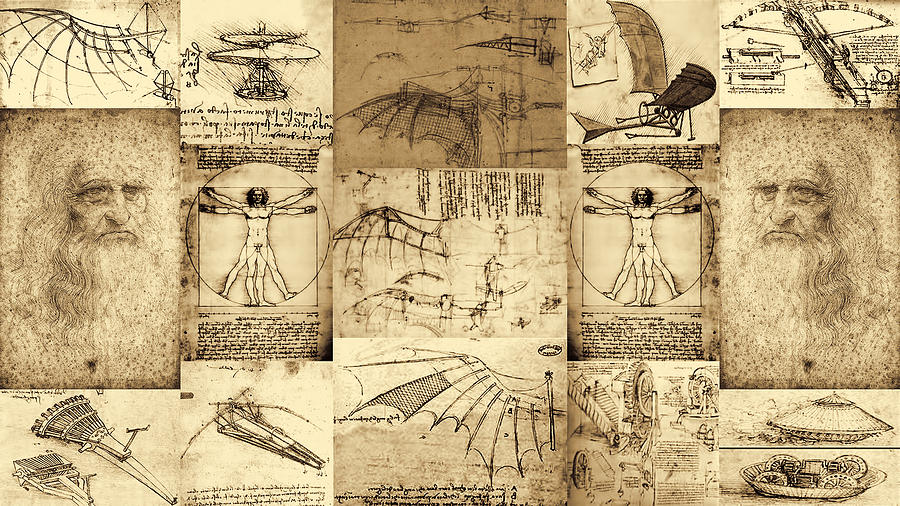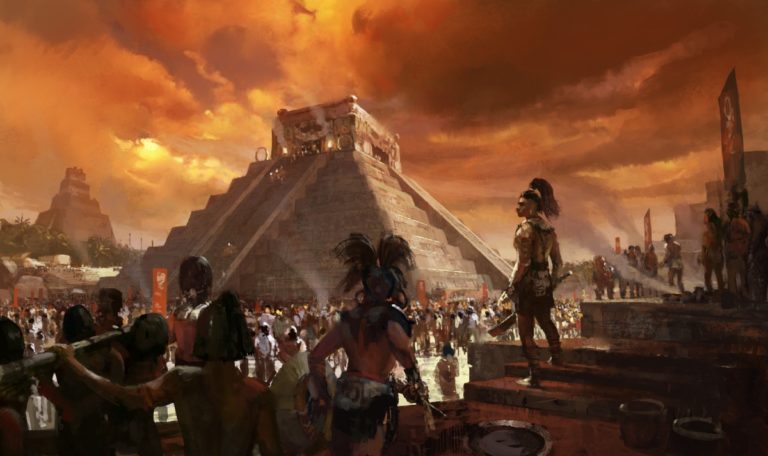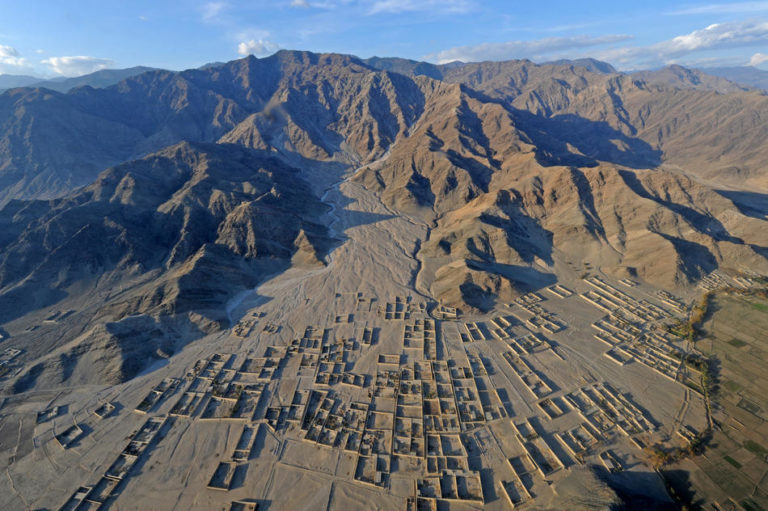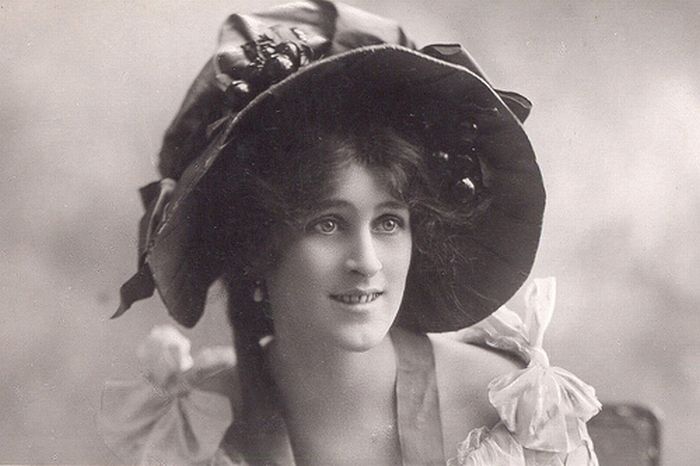The Brilliant Mind of Leonardo da Vinci: Inventions That Shaped Our World
Most people know Leonardo da Vinci as the genius who painted the Mona Lisa. But few realize how much more there was to this remarkable man. A true Renaissance polymath, Leonardo wasn’t just a painter — he was an inventor, engineer, scientist, architect, musician, and visionary far ahead of his time. Many of his ideas, drawn centuries ago, foreshadowed technologies we still use or admire today.
Let’s explore some of Leonardo da Vinci’s most fascinating inventions — creations that show how one man’s imagination continues to inspire the modern world.
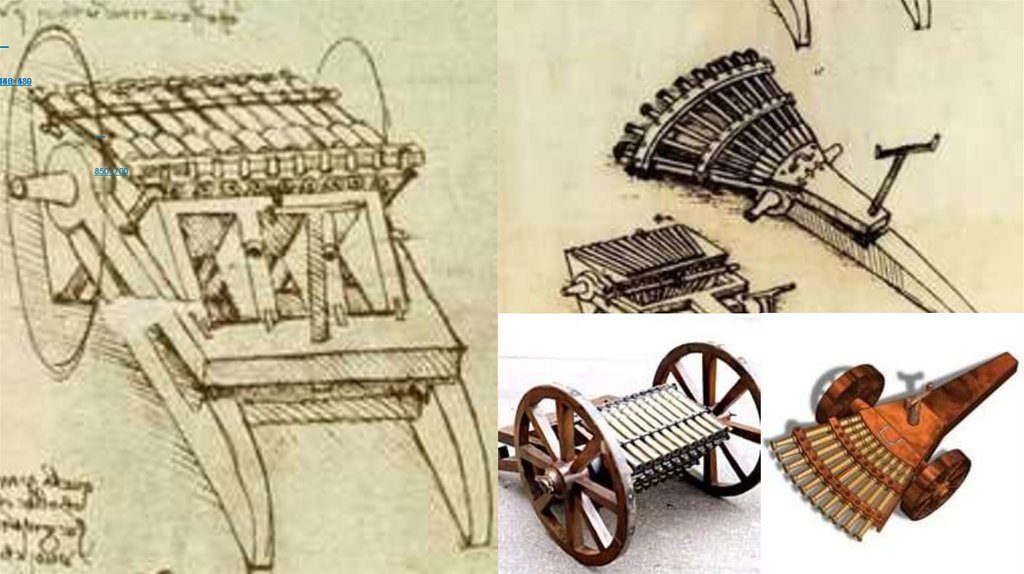
The Multi-Barreled Cannon — The First Step Toward the Machine Gun
During the 15th century, battlefield artillery was slow and cumbersome. Cannons took so long to reload that armies often lost precious time. Leonardo’s solution was ingenious: a multi-barreled cannon that could fire continuously.
He designed a weapon with 33 small-caliber barrels arranged in three rows of 11. While one row fired, another cooled, and a third was reloaded — allowing for near-continuous shooting. His design was centuries ahead of the first machine guns, proving Leonardo’s unmatched grasp of both engineering and practicality.
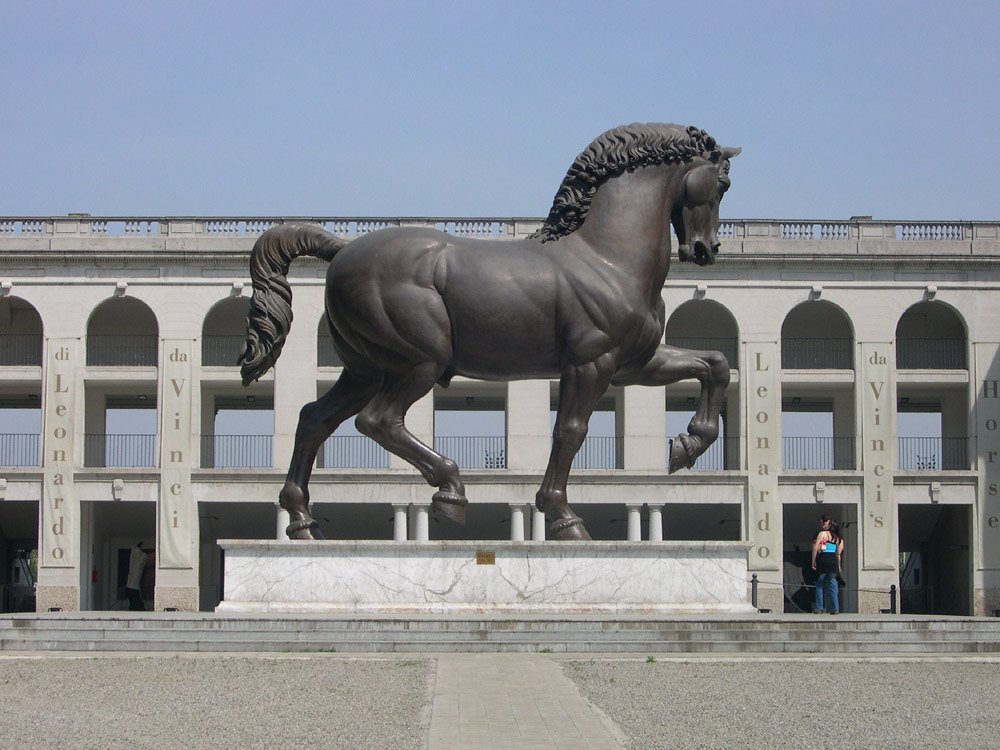
The Great Horse (Gran Colosso) — An Unfinished Masterpiece
In 1482, the Duke of Milan commissioned Leonardo to create the world’s largest equestrian statue. Never one to back down from a challenge, Leonardo designed a seven-meter-tall bronze horse that would have required 80 tons of molten metal to complete.
To achieve this, he invented a new method for casting large bronze structures and even developed a custom furnace. But before it could be finished, war struck Milan in 1499, and French soldiers destroyed Leonardo’s clay model.
Centuries later, in 1999, American artist Charles Dent completed Leonardo’s dream. The magnificent bronze horse now stands in Milan, finally bringing da Vinci’s grand vision to life.
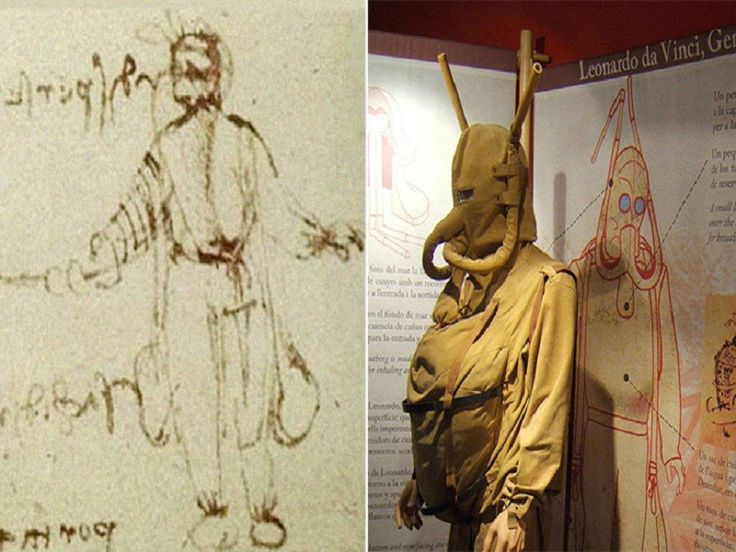
The Diving Suit — A Renaissance Submarine
In 1500, while working in Venice, Leonardo imagined a suit that would let divers sabotage enemy ships from below. His design featured a leather suit with a mask connected to air tubes that reached the surface through a floating bell.
The diver could breathe through the tubes and control buoyancy with a small airbag. Leonardo even added a pouch for… practical needs during long dives. Though it was never built in his lifetime, the concept foreshadowed modern scuba gear and underwater warfare tactics.
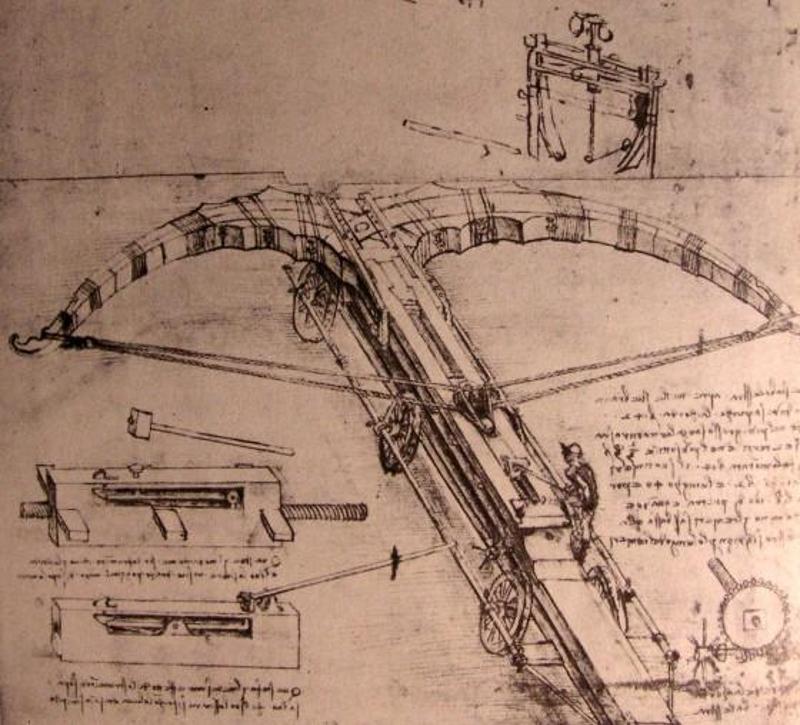
The Giant Crossbow — A Weapon of Fear
Leonardo understood that war wasn’t just about destruction — it was also about intimidation. His massive crossbow, 24 meters wide, was meant to terrify enemies as much as damage them.
Made of flexible wood and mounted on six wheels, it could launch heavy stones or flaming bombs instead of arrows. Though it was never used in battle, it showed Leonardo’s insight into the psychological side of warfare.
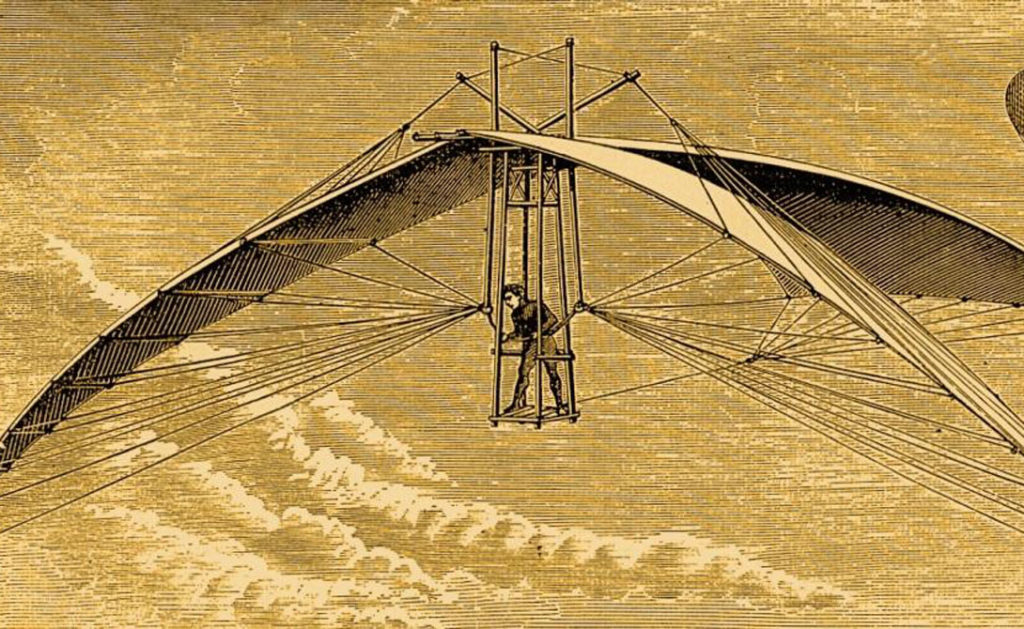
The Ornithopter — Dreaming of Flight
Long before airplanes, Leonardo dreamed of human flight. Inspired by birds and bats, he designed the “ornithopter,” a machine powered by human effort. The pilot would lie in the center and pump pedals to make the wings flap.
Of course, human muscles alone couldn’t lift the craft — but his sketches captured the principles of aerodynamics that would eventually make flight possible. His dream inspired inventors for centuries, paving the way for modern aviation.
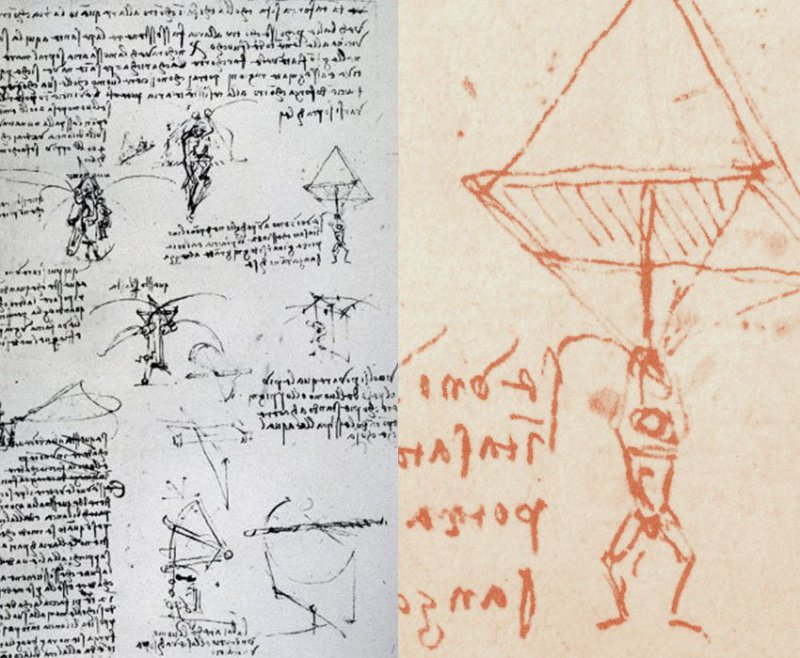
The Parachute — A Leap of Faith
Leonardo’s notes include one of the earliest designs for a parachute: a pyramid-shaped canopy made of linen and wooden rods. He claimed it would allow anyone to jump safely from great heights.
Many doubted it would work — until 2000, when British skydiver Adrian Nicholas built and tested a parachute based on Leonardo’s exact design. It worked perfectly, gliding more smoothly than many modern parachutes. Once again, da Vinci’s genius had proven timeless.
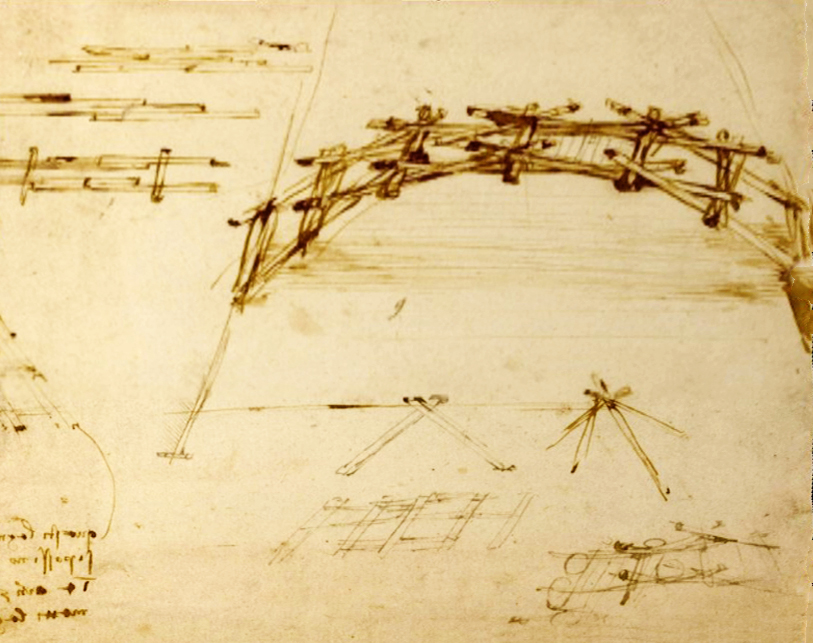
The Revolving Bridge — Mobility in War
In the 1480s, Leonardo designed a portable, rotating bridge for the Duke of Sforza. His bridge could be quickly assembled, packed, and carried across rivers, giving armies unmatched mobility.
Using ropes and pulleys, soldiers could raise or lower the bridge in minutes. Leonardo’s design was both light and strong — a practical military innovation centuries before modern engineering caught up.
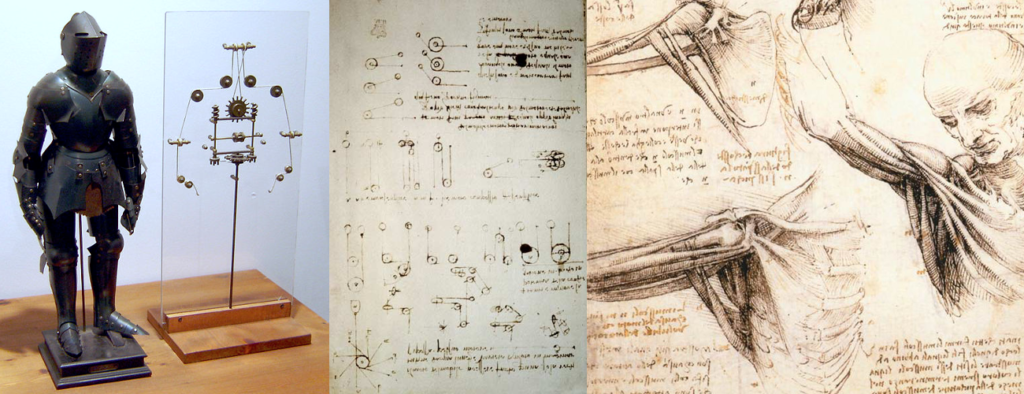
The Robotic Knight — The First Humanoid Robot
In 1495, Leonardo stunned the Milanese court with an invention that looked straight out of science fiction — a mechanical knight that could sit, stand, move its head, and even raise its arms.
Inside the armor was a system of pulleys, gears, and cables modeled after the human muscular system. In 2002, robotics expert Mark Rosheim recreated Leonardo’s design, and it worked — proving that the Renaissance master had essentially invented the first robot.
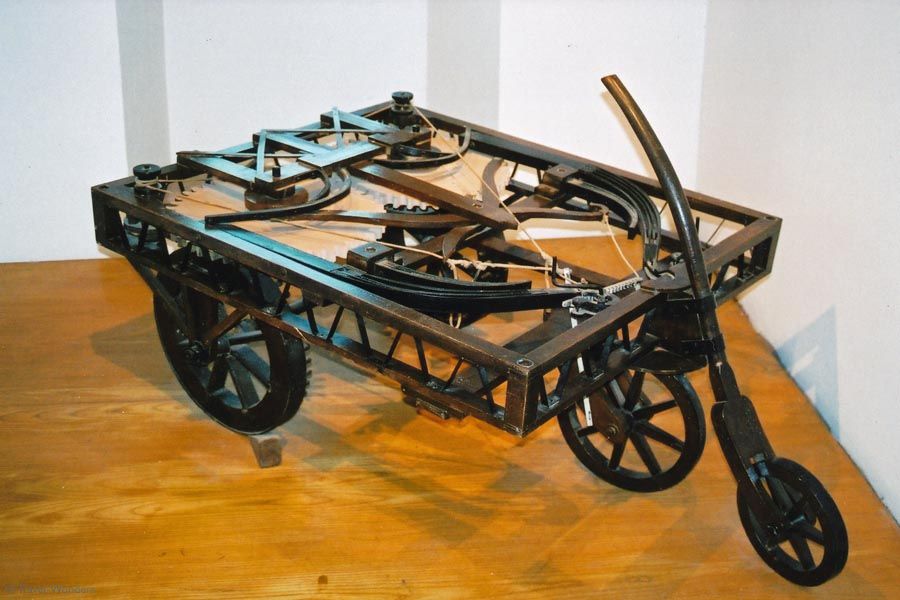
The Self-Propelled Cart — The Birth of the Automobile
Centuries before engines, Leonardo designed a cart that could move without horses. Powered by coiled springs and guided by a steering mechanism, his “self-propelled cart” could move on its own and even brake.
Though likely intended for theatrical displays rather than travel, its mechanics were groundbreaking. In many ways, Leonardo’s cart can be seen as the ancestor of both modern cars and robotic rovers exploring distant planets today.
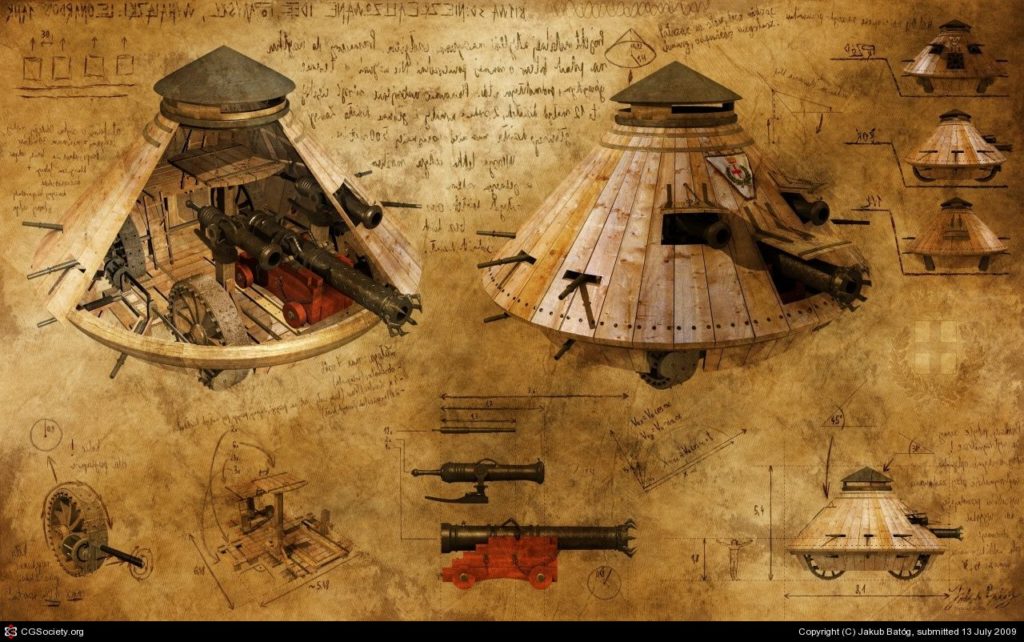
The Armored Tank — A Rolling Fortress
Leonardo’s tank design looked like a giant turtle shell covered in metal plates. It was powered by hand cranks operated by four men and equipped with a ring of small cannons.
However, his plans contained deliberate design flaws — possibly to prevent others from turning his idea into a deadly weapon. Even so, the concept laid the foundation for the armored vehicles that dominate modern warfare.
A Mind Centuries Ahead
Leonardo da Vinci’s imagination knew no limits — from the skies to the sea floor, his ideas explored every frontier. Not all of his inventions were built in his lifetime, but each one reflected a mind centuries ahead of its era.
His curiosity and creativity remind us that science and art are not opposites — they are two sides of the same brilliant coin. Leonardo dreamed of flight, movement, and innovation, and five hundred years later, we’re still catching up to his vision.

